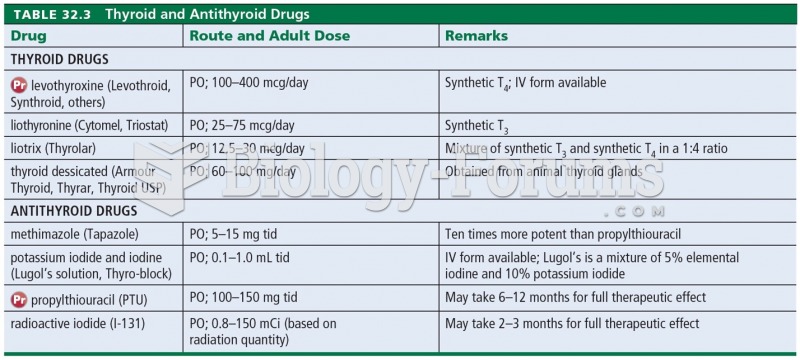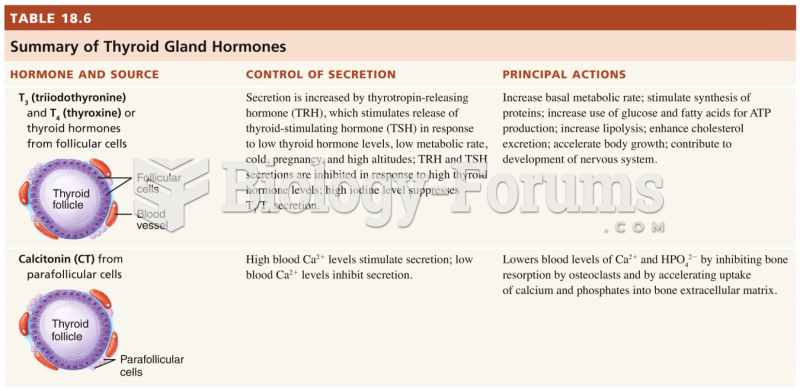|
|
|
In 2010, opiate painkllers, such as morphine, OxyContin®, and Vicodin®, were tied to almost 60% of drug overdose deaths.
The first documented use of surgical anesthesia in the United States was in Connecticut in 1844.
An identified risk factor for osteoporosis is the intake of excessive amounts of vitamin A. Dietary intake of approximately double the recommended daily amount of vitamin A, by women, has been shown to reduce bone mineral density and increase the chances for hip fractures compared with women who consumed the recommended daily amount (or less) of vitamin A.
In most cases, kidneys can recover from almost complete loss of function, such as in acute kidney (renal) failure.
If all the neurons in the human body were lined up, they would stretch more than 600 miles.







